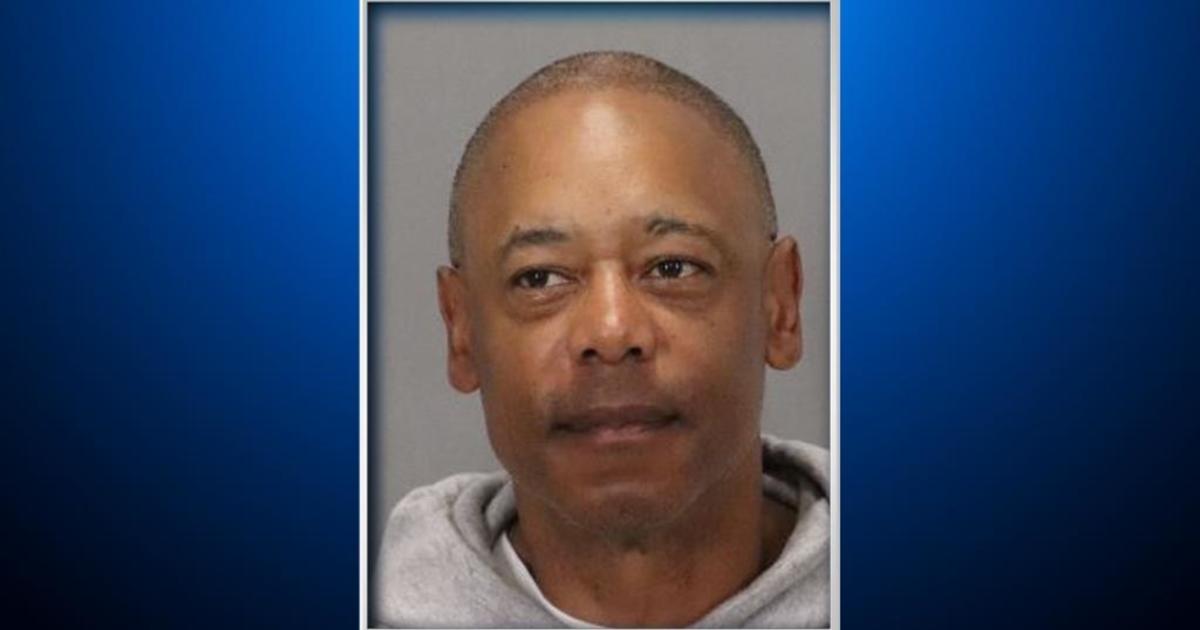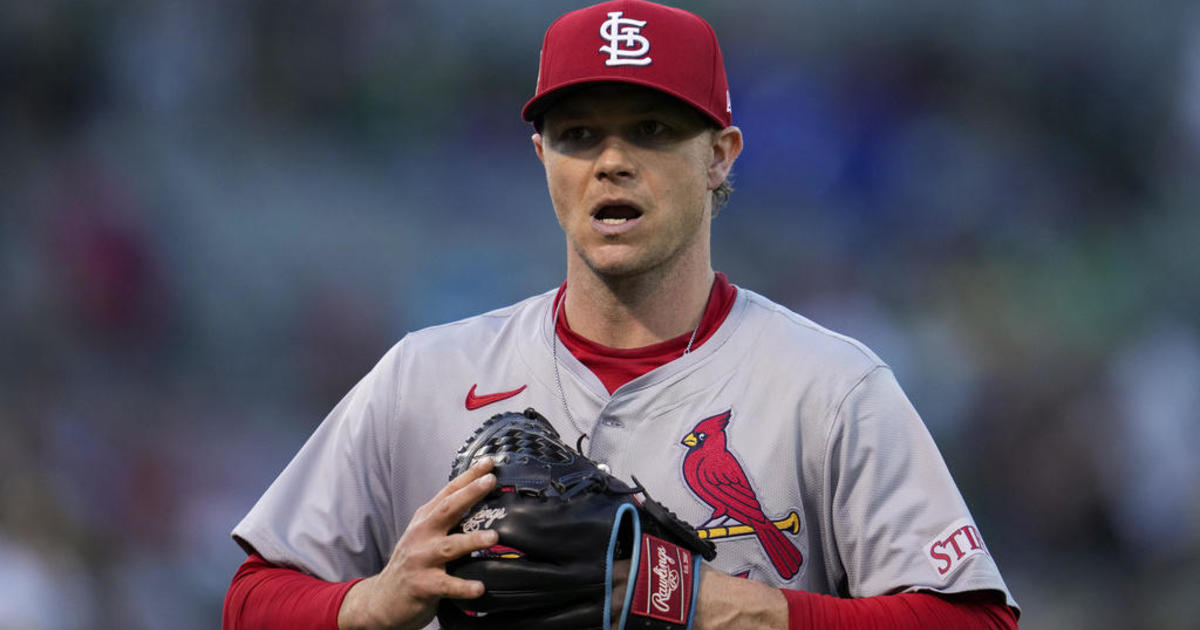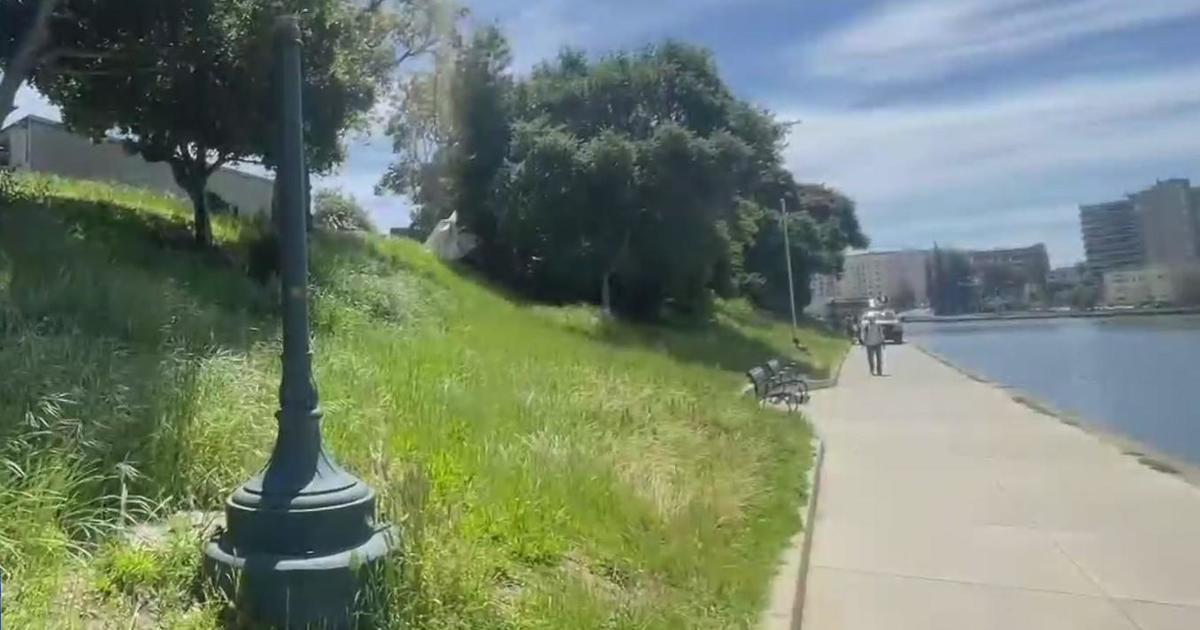Student Rising Above Takes Care Of Mom, Academics At Same Time
SAN PABLO (KPIX 5) - Imani Evans has grown up watching diabetes devastate her mother, one complication at a time.
"I see her suffering," says Imani. "Her being in pain, honestly it hurt me."
She was only five when her mother became legally blind, so Imani often had to guide her or read her mail.
"Sometimes, she is my eyes," her mother says, "and my little rock."
On summer break from Humboldt University, Imani slips back into her caretaking role, bandaging up sores her mother gets from having kidney dialysis three times a week. It is a job she accepts with no resentment, especially as her mother, Kwanikki Vanhook grows more fragile.
"She's very sick and this could be my last time with her," Imani says. "That makes me want to be with closer with her and around her and hear her even more."
Her father left them when Imani was quite small. After her mom lost her vision, she lost her leg.
Later, Kwanikki developed congestive heart failure and had to get a pacemaker.
"I've had 3 death experiences… I've had six heart attacks," says Imani's mom, "and she's there and she's there showing me her love."
"I think one of the worst things is hoping, finding hope that things will get better," says Imani, "then bit by bit things just seem to get worse."
What struck me, when I met Imani and her mom was not just their love for one another, but the heartfelt reciprocity. It was definitely not a one-way caretaker relationship.
Kwanikki's doctors say the only thing keeping her alive is her spirit, but what feeds the spirit is the relationship of a mother and one special daughter.
As hard as her life has been, Imani says, "I think what got me thru it is that she's still here. You know, I get to see her and hear her voice."
Kwanikki puts it this way: "that was my prayer to god, please don't take me until she is ready."
Imani went to Vista High in San Pablo, so her schedule would be flexible enough for her to care for her mom. She was not only tending to her mother's health needs but also cooking, cleaning and running the errands. There were other relatives to help but Imani was her mom's most important caretaker then.
"I think I'm kind of used to it because it's always been like this," says Imani, but she admits missing the typical teenage experiences was hard. It was hard on her mother too.
"More than anything, she's had to sacrifice," says her mom. It is clear Kwanikki hates depending on her daughter but they have also developed a kind of teamwork- her mom describes it as two puzzle pieces that fit together.
They are also each other's main source of emotional support.
So when it came time for Imani to go to college, her mom had to make things very clear: "This is your life. I've lived my life, and I'm fine," she says, with tears in her eyes. " But you have your own life to live and you have to live it to the fullest".
Imani remembers the message clearly, "Don't think about me," her mother would tell her, "and don't let me stop you from doing that. She would say it in the most sincere way. I knew I had to do it."
And that was how Imani decided to go away to Humboldt University. It was more than permission- it as encouragement. Her Students Rising Above advisor, Lorna Contreras, remembers how much that encouragement meant to her: "Imani needed to know that her mother was also pushing her to go to college and that her mother also had dreams and aspirations to see her little girl go to college and be successful."
Her mother was able to make the trip up to Humboldt to drop her off. Imani remembers every detail clearly.
"When she had to leave me there, you know… that was really hard," she says tearfully. "Probably the hardest thing I've ever done."
The problems never stop when a student like Imani goes off to college. At one point when her mother's health problems flared, she was ready to quit. Lorna Contreras became her flashlight in the dark, reminding her that she needed to stay in college for herself and her mother too.
"She needed to have a little hope that her life was going to be okay and this was the journey that was set out for her and that it was just going to make her stronger on the other end."
Imani would not have been able to go to college without the help of SRA- not just the financial aid or internships, but the hours of encouragement from the advisors like Lorna Contreras. Program leaders say it is the single most important factor helping many first generation, low income kids like Imani get through college
Lorna Contreras knows this, as a former "Student Rising Above" herself, who also had responsibilities taking care of her disabled parents. "Her world was inside the house," she says of Imani, "and being able to leave to college and see a world from a different perspective and learn about it and explore it has really allowed her to blossom."
And blossom she has: "I love college," says Imani breaking into a smile, than laughing. "I do. I love college. You know I look at the world completely differently."
She wants to be a social worker, which thrills her mother no end, because she had the same aspirations before diabetes took over her life.
Kwanikki has a caretaker now, but even while her daughter is away in school, the person who is keeping her alive is Imani.
"She's had so much unhappiness in her life. A lot of pain. A lot," says Kwanikki, "she rose above it."
She rises above it with something her mother gave her-"she's taught me strength by showing me strength," says Imani. It's a lesson that will last a lifetime.



